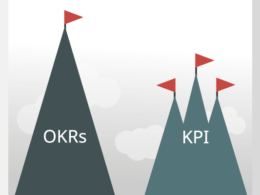According to a study by FlexJobs, remote work grew by 159% between 2005 and 2017, and the trend has only accelerated due to recent global events.
Gone are the days of being bound to a single office location; now, as a remote worker, you can take advantage of modern technology and explore new possibilities.
Working from your home, coffee shop, or even overseas is not only possible but also highly beneficial for overall productivity while improving work-life balance and overall quality of life. However, not all cities are created equal when it comes to supporting the remote work lifestyle.
Factors to consider for remote employees
When choosing a city for remote work, several factors come into play:
- Cost of Living: This includes housing, food, transportation, and other daily expenses.
- Internet Connectivity and Reliability: Stable and high-speed internet is non-negotiable for remote work.
- Access to Co-working Spaces: These spaces offer an office-like environment, which can boost productivity and offer networking opportunities.
- Quality of Life: Factors such as healthcare, safety, education, climate, and recreational options matter for a well-rounded lifestyle.
- Local Community and Networking Opportunities: Being a part of local business groups and events can help build valuable connections.
A study by WalletHub on the best US cities for jobs found that those with a low cost of living, high median income, and ample job opportunities ranked higher.
4 Best Cities for Remote Employees
Disclaimer: This is a personal compilation based on various studies and resources. Individual experiences may vary. Each city overview will include a discussion on the cost of living, internet infrastructure, coworking spaces, and quality of life.
1. Austin, Texas
- Cost of Living: Austin’s cost of living index is 119.3, which is slightly below the U.S. average of 121.8, according to BestPlaces.
- Internet Infrastructure: With an average internet speed of 110 Mbps, Austin ranks well for internet connectivity and reliability.
- Co-working Spaces: Austin offers over 50 coworking spaces, including popular options such as WeWork and Impact Hub.
- Quality of Life: Austin is known for its vibrant music scene, delicious food, and plenty of outdoor activities, contributing to a high quality of life.
2. New York City, New York
- Cost of Living: New York City’s high cost of living index (160.2 against the U.S. average of 121.8) is the only reason the Big Apple didn’t make it to the top position.
- Internet Infrastructure: The average internet speed in NYC is 100 Mbps, making it an ideal location for businesses and entrepreneurs who rely on reliable internet access.
- Co-working Spaces: With 594 properties, New York is the city with the highest number of coworking spaces in the United States.
- Quality of Life: New York City is one of the most exciting cities in the world, offering a unique blend of culture, arts, entertainment, and business opportunities.
3. Raleigh, North Carolina
- Cost of Living: Raleigh’s cost of living index is 101.8, just above the U.S. average, but lower than many major cities.
- Internet Infrastructure: The city has an average internet speed of 85 Mbps.
- Co-working Spaces: There are plenty of coworking spaces, including HQ Raleigh and Industrious Raleigh.
- Quality of Life: Raleigh offers a balanced lifestyle with a strong job market, excellent schools, and access to arts and culture.
4. Berlin, Germany
- Cost of Living: Despite being the capital, Berlin’s cost of living is surprisingly affordable, with a cost of living index of 67.33 according to Numbeo.
- Internet Infrastructure: The city boasts an average internet speed of 28 Mbps.
- Co-working Spaces: Berlin offers a vibrant startup scene and has a wealth of coworking spaces, including Betahaus and Factory Berlin.
- Quality of Life: With a rich history, cultural activities, and excellent public transportation, Berlin offers a high quality of life.
Check this out:
Top 8 Tools For Software Developers To Become More Productive
4 Worst Cities For Remote Employees
While some cities offer a conducive environment for remote work, others may not be suitable due to high living expenses, substandard internet connectivity, or a dearth of coworking venues. Here are five cities that may prove challenging for remote workers.
1. San Francisco, California
- Cost of Living: San Francisco is one of the most expensive cities in the world, with a cost of living index of 244 according to BestPlaces.
- Internet Infrastructure: Despite having average internet speeds of 67 Mbps, the high cost of living can offset this advantage.
- Co-working Spaces: The city has plenty of coworking spaces but they are also among the most expensive in the US.
- Quality of Life: Despite its vibrant tech scene and cultural opportunities, the high cost of living can impact the quality of life negatively.
2. Honolulu, Hawaii
- Cost of Living: Honolulu’s cost of living index is 200.9, making it one of the more expensive cities in the U.S.
- Internet Infrastructure: Internet speed averages 34 Mbps, which is on the slower end compared to other U.S. cities.
- Co-working Spaces: Options for coworking are limited compared to mainland cities.
- Quality of Life: Although it offers a beautiful environment and a laid-back lifestyle, the high cost of living and slow internet speeds make it less ideal for remote work.
3. Venice, Italy
- Cost of Living: Venice is expensive, with a cost of living index of 75.92 according to Numbeo.
- Internet Infrastructure: Internet speed in Venice averages 16 Mbps, among the slowest in Europe.
- Co-working Spaces: Coworking spaces are relatively few and far between.
- Quality of Life: Despite its beauty and unique lifestyle, challenges such as rising water levels, large tourist crowds, and slow internet speeds make it less suitable for remote work.
4. Buenos Aires, Argentina
- Cost of Living: Buenos Aires has a moderate cost of living index of 32.92.
- Internet Infrastructure: The city has recurrent internet reliability issues with an average internet speed of 11 Mbps.
- Co-working Spaces: While there are some coworking spaces, unreliable internet can make them less practical.
- Quality of Life: Despite its rich culture and cuisine, Buenos Aires may prove challenging for remote work due to the reliability of its internet infrastructure.
Tips for Choosing the Right City for Remote Work
Before packing your bags, it’s crucial to thoroughly research potential cities for remote work. Remember to take into account aspects like your professional objectives, familial requirements, and lifestyle choices. Also, join local online communities to gain insight into the everyday life and work conditions in the city.
Consider taking a ‘workation‘ – a blend of work and vacation – to test out a potential city before committing. You’ll get a first-hand feel for the city’s vibe, amenities, and remote work infrastructure.
Remember, the world is your oyster as a remote worker. Happy hunting!


















